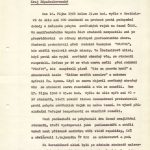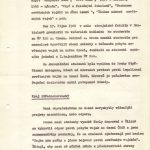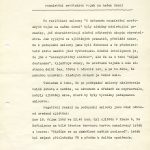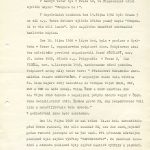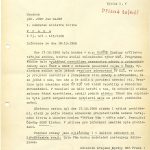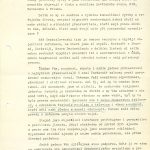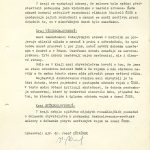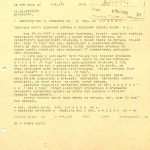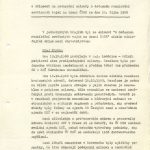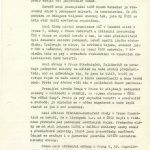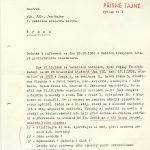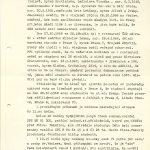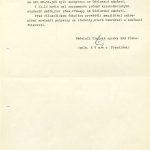Socialist Munich
On 16 October 1968 the Czechoslovak Prime Minister Oldrich Cernik and the Chairman of the Council of Ministers of the Soviet Union Alexei Kosygin signed a treaty between the government of the Czechoslovak Socialist Republic and the government of the Soviet Socialist Republic on the conditions governing the temporary stay of the Soviet troops in the Czechoslovak Socialist Republic. Two days later, the treaty was ratified by the National Assembly without a long debate.
Civil protests against the treaty were anticipated, and the Ministry of the Interior therefore decided to gauge public opinion, as can be seen in the archival materials lodged with the collection entitled Office of the State Secretary of the Ministry of the Interior of the CSSR plk. JUDr. Jan Majer (A10, inv. no. 31).
On 22 October the chief officers of the regional units of the National Security Corps were ordered to provide a daily overview of the response to the signing of the treaty on the temporary dislocation of the troops. However, even the police officers may have been surprised by the mostly calm reactions from the citizens: “The intelligence we have gathered proves that public interest in the treaty is waning and the responses are basically identical as regards their content. On 29 October 1968 most of the regional offices did not report any intelligence”. Plk. Jan Majer therefore cancelled the order to provide daily reports as of 30 October. The public protest against the signing of the treaty thus calmed down quite quickly, and besides some gatherings to mark the 50th anniversary of the establishment of the republic the only protest demonstration against the treaty was held in Bratislava on 16–17 October, with 400 mostly young people attending.
The intelligence reports most often include information on flyers and resolutions or writings found in public spaces (such as “Socialist Munich”, “1938=Munich, 1968=Moscow”, “We feel pity for the cowardice of our MPs” or anti-Soviet writings with the swastika). The citizens were most often concerned and confused about how many troops would be staying and for how long, were anxious about the threat to state sovereignty, and the older generations in particular were worried about prices increasing.


